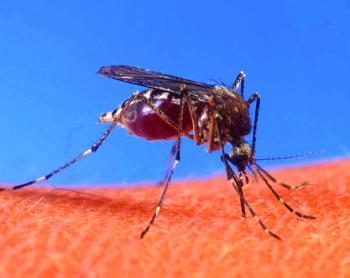
Mosquito Awarness Week starts Sunday
Each year the week of June 26 is declared National Mosquito Control Awareness Week by the American Mosquito Control Association.
According to Cajun Mosquito Control, LLC, Awareness Week (June 26-July 2) coincides with the time to enact the necessary mosquito seasonal reminders, educational precautionary measures, actions to avoid mosquito bites and controlling potential breeding sites.
It is very important at this time to know that between the months of May through November we are entering the peak mosquito arbovirus season.
West Nile Virus is the more immediate threat in St. Martin Parish. According to state health officials, West Nile presents in three ways, neuroinvasive, West Nile fever, and Asymptomatic.
A neuroinvasive disease illness is caused by West Nile virus attacking the brain or spinal cord. West Nile fever is less severe, with most people only suffering mild, flu-like symptoms.
Asymptomatic individuals are usually not ill and only discovered to have the virus in their blood when some type of blood work is performed.
About 90 percent of all cases are asymptomatic, while about 10 percent will develop West Nile fever. Only about one in 150 infected individuals will show the serious symptoms associated with the neuroinvasive form of the virus.
A big story in the news is the Zika virus active in South America with subsequent travel-related infections cropping up in the United States. Here are some facts pertaining to Zika virus infections:
•There are no known confirmed human cases of Zika virus transmitted by infected mosquitoes in the Continental U.S.
•Aedes aegypti is the leading carrier of Zika virus. This species of mosquito is extremely rare in Louisiana. There are just a few isolated locations in Orleans and St. Tammany parishes that have captured Aedes aegypti mosquitoes over the last 10 years.
•Human cases reported in the U.S. have been individuals who were infected in other countries.
•Zika virus can cause the birth defect microcephaly, which can severely affect the development of an infant’s brain.
•Female Aedes aegypti mosquitoes prefer to bite around the ankles of a human host and are considered to be daytime biters.
•Aedes aegypti mosquitoes prefers to take a human blood meal and lays its eggs very close to its place of origin.
•This species of mosquito prefers to breed in tires, pet water bowls and other small containers.
•There is no vaccine for infected humans.
To avoid bites and reduce the potential breeding mosquito egg laying sites that could result in the production of thousands of mosquitoes in your area, follow these suggestions:
•Remove standing water weekly.
•Avoid peak mosquito activity times of dusk and dawn.
•If you will be outside, wear a mosquito repellent – preferably one containing DEET. The American Academy of Pediatrics (AAP) recommends that insect repellents should be applied by adults when used on children. Insect repellents are not recommended for infants younger than 2 months.
•Follow the recommendations appearing on all product labels when using any repellent.
•Apply repellent on exposed skin and clothing. Do not apply under your clothes or on broken skin.
•To apply repellent to your face, spray on your hands and then rub on your face.
•Wear long-sleeved light colored shirts and pants when outdoors for long periods of time.
•Avoid perfumes and colognes when outdoors for extended periods of time.
•Make sure that your house has tight-fitting windows and doors, and that all screens are free of holes.
•Clean and drain clogged roof gutters.
•Drain pet water bowls, ceramic pots, ice chests or any other containers that may have stagnant water on your property at a minimum of every seven days.
•Drill new holes in the bottom of outdoor recycling containers. Drainage holes that are located on the side of a container can collect enough water for mosquitoes to breed.
For more information visit cajunmosquitocontrol.com where you can email in a spray request, click on helpful links or ask a mosquito-related question. Cajun Mosquito Control, LLC, can also be reached at (337) 365-7988.
- Log in to post comments
